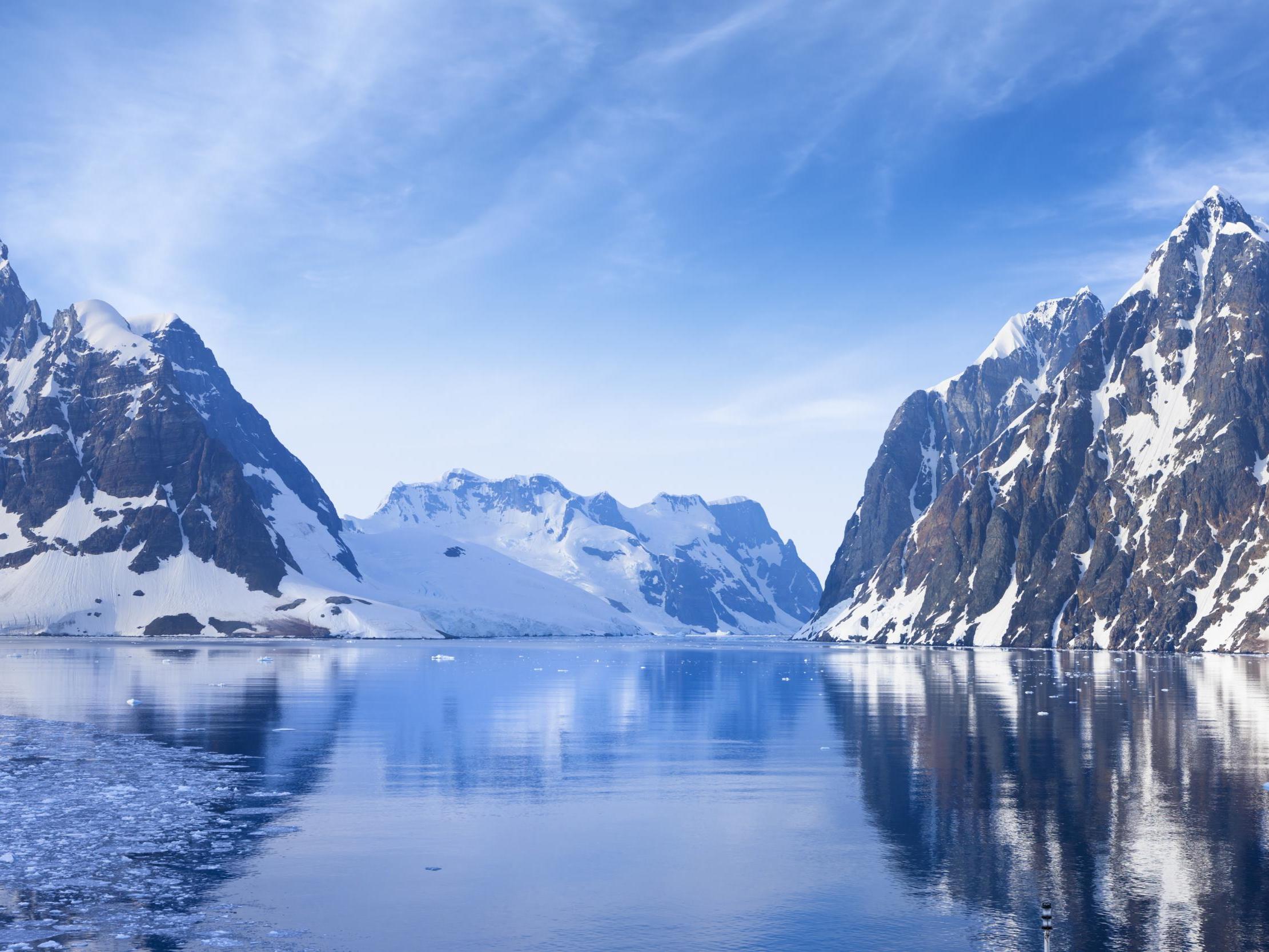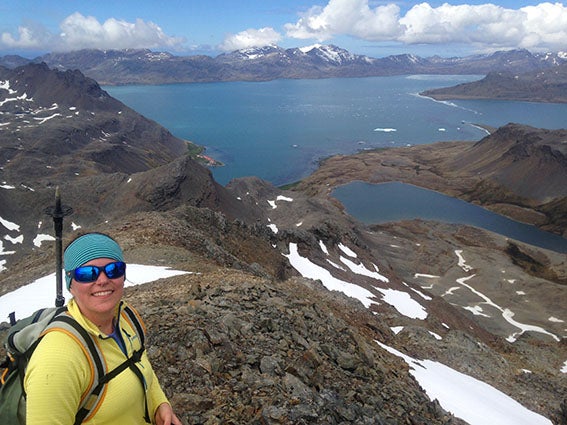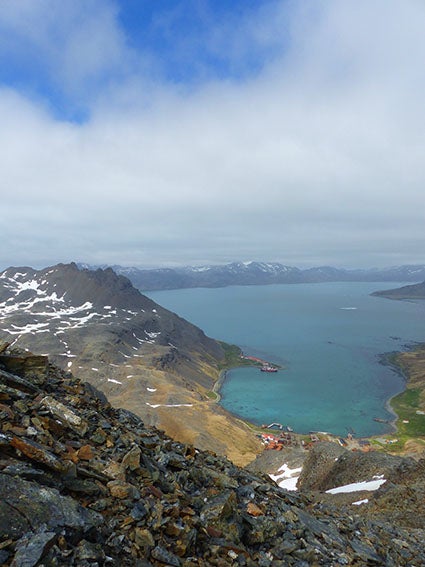‘Quarantined vegetables and 200 seal pups’: Meet the woman cooking Christmas dinner for 25 people in Antarctica
Sarah Clark has travelled over 10,000 miles to cook for staff on the British Antarctic Survey. Sophie Gallagher speaks to her two weeks before Christmas


Your support helps us to tell the story
From reproductive rights to climate change to Big Tech, The Independent is on the ground when the story is developing. Whether it's investigating the financials of Elon Musk's pro-Trump PAC or producing our latest documentary, 'The A Word', which shines a light on the American women fighting for reproductive rights, we know how important it is to parse out the facts from the messaging.
At such a critical moment in US history, we need reporters on the ground. Your donation allows us to keep sending journalists to speak to both sides of the story.
The Independent is trusted by Americans across the entire political spectrum. And unlike many other quality news outlets, we choose not to lock Americans out of our reporting and analysis with paywalls. We believe quality journalism should be available to everyone, paid for by those who can afford it.
Your support makes all the difference.Sarah Clark’s commute to her new office meant a 21-hour flight from London Heathrow, followed by four days on a boat in the rough, freezing waters of the Scotia sea. Given Clarke suffers from travel sickness, the 900 miles weren’t plain sailing. But stepping off the ship in the first week of November, knowing she would be working on the Antarctic Peninsula - more than 10,000 miles from her home in north Wales - until May 2020, she says it was all worth it.
The 37-year-old chef was hired to cook for the nearly 50 members of staff at the British Antarctic Survey (BAS) station at King Edward in South Georgia, part of the British Overseas Territories. The team is spending the season monitoring levels of predators such as seals and penguins and working with fisheries in local waters. Clark is more than qualified for the job, but cooking Christmas dinner for this many people in these conditions will be a unique adventure.
“We’re going to have homemade pizza and a BBQ for Christmas lunch, it’s become a bit of a tradition here,” Clark tells me over email from the base on the southern continent. She is planning for around 25 people to be around the table (at the highest point in the season there will be 50 people, but not in December), made up of BAS staff, South Georgia government staff, and a handful of workers from the nearby heritage trust museum. “We will all come together as much as possible,” she says. “Although some will have to work, of course."

To do the job Clark has had to leave her family for six months and undergo intense mandatory training, which involved lessons in everything from first aid and sea survival, to how to use breathing apparatus in case of a fire. As well as, of course, lessons on how to deal with the extreme climate.
Weather conditions at the King Edward station vary from between -15 degrees and 20 degrees Celsius throughout the year. Currently it is summer in the region and the weather can be bright and spring-like or “like a wintery day in the UK”, says Clark. But it is changeable. “We’ve had some snow last night and can get really strong winds."
Two weeks before the big day and the team has already put up their Christmas tree and gathered together all the necessary supplies for the meal. “For the past week I have been sorting out the stores, which are full to bursting,” says Clark. Most of the ingredients come all the way from the UK, delivered in June every year, and then a “relief” package comes in December. This is a mixture of frozen food and dry goods, while fresh groceries are sent over once a month from the Falkland Islands.
Despite having to travel a much shorter distance, the fruit and vegetable delivery has to be quarantined on arrival to ensure it is “biologically secure” and won’t inadvertently introduce new species to the region. “We need to go through everything to make sure there are no insects in the delivery, peel every layer of the onions, for example, before we pop them in the fridge,” Clark tells me.

Food shopping is not the only task that requires more effort than normal – going to the freezer means leaving the warmth of the kitchen – “it’s really pretty good and has a great view of the bay!” – putting on a snow jacket, wellington boots and taking a rucksack outside to where breeding fur seals are currently nursing around 200 pups. “It makes going to the food store interesting, trying to avoid them.” And if you need more supplies than you can carry? You borrow the station’s JCB digger and fill up the bucket.
When they wake up on the morning of 25 December, unlike normal days at the base when everyone serves themselves breakfast (cereals, yoghurt and a selection of freshly-baked bread), and then has a bacon roll snack at 11am (known as Smoko), they will have a special festive itinerary. The team will get together to sing carols and play instruments at the Grytviken whalers church and send out Christmas greetings to other bases in Antarctica before settling down for a communal lunch together.
One tradition they definitely won’t have will be the Queen’s speech as there is no television on the base, and the internet is “pretty unworkable”, says Clark. Although the phone line will be busy all afternoon with workers trying to contact their families and friends, so Clark says she won’t get an opportunity to contact her boyfriend on this occasion.
The BAS station is unusual in having chefs, as staff normally cook for themselves but because of a new building project at the site, Clark was recruited. In the harsh environment, with ever-changing weather conditions, she says it is important to keep staff well fed. “It’s important that chefs provide balanced and nutritious meals to make sure people are eating as well as possible, and to make sure we use stocks up sensibly [on base].”
Outside of the festive season they host themed evenings: on a Wednesday they have curry night, and a chip tea on Fridays. On Saturday evening they hold a three-course meal, which most people dress up for, says Clark. Then on Sunday morning they serve a full English breakfast followed by a roast.
“It’s mostly good home-style cooking like lasagne, stew or chilli. This is the only place people can get their meals from, there is no other choice. Some people have traditional tastes and others are more adventurous so you have to cater for both of those.”
Clark, who will remain at the base for roughly 130 days after Christmas until the winter season draws in and the disappearing light returns the base to 24 hours of darkness.
“I don’t like leaving my family and being away from my boyfriend and friends. Those things are always hard even if they are really supportive," she says. "But I look for jobs that I can either learn a lot doing, or that can take you to interesting places."
“Antarctica isn’t a place everybody gets to go. And working for BAS is really satisfying – knowing you are supporting really important science. You get to live and work in fantastic places for extended periods, not just hop off a boat and experience it for a handful of hours."
Join our commenting forum
Join thought-provoking conversations, follow other Independent readers and see their replies
Comments